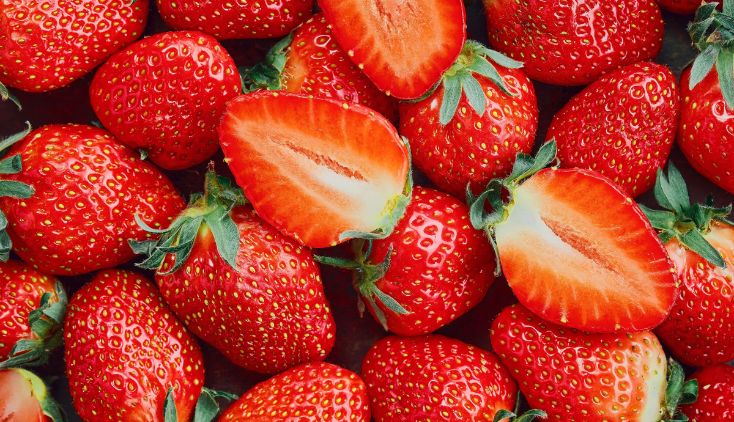Incorporate These Foods into Your Diet
Hair loss caused by conditions like alopecia can be frustrating and emotionally draining. While there’s no magic food that can cure alopecia overnight, the right diet can support scalp health, reduce hair shedding and promote stronger hair growth. If you're looking for natural ways to improve hair health, here are some of the top foods to help reduce hair loss.
1. Salmon
Salmon is rich in omega-3 fatty acids, which play a key role in supporting scalp circulation and reducing inflammation that may contribute to hair thinning. Omega-3s also help nourish hair follicles from the inside out, making strands shinier and less likely to break. The vitamin D found in salmon is also linked to healthy hair growth, especially in people with vitamin D deficiencies. This deficiency is common in individuals with alopecia areata.
2. Eggs
Eggs are a powerhouse of protein and biotin, two nutrients essential for hair growth. Hair is primarily made of keratin, a protein that depends on regular intake to stay strong. Biotin, a B-vitamin found in eggs, is known to improve the structure of keratin in the body. Low levels of biotin are often linked to thinning hair and brittle strands. Including eggs in your diet provides a natural way to support the growth and thickness of your hair.
3. Spinach
Leafy greens like spinach are full of iron, folate and vitamins A and C, all of which help stimulate hair follicles and keep your scalp healthy. Iron helps red blood cells carry oxygen to hair roots, which is necessary for growth. People with iron deficiency are more likely to experience hair loss, especially women. Spinach also contains sebum-regulating compounds that help keep hair moisturized and reduce breakage.
4. Sweet Potatoes
Sweet potatoes are an excellent source of beta-carotene, which your body converts into vitamin A. Vitamin A helps increase the production of sebum, a natural oil that moisturizes the scalp and keeps hair looking healthy. A dry scalp can lead to itchiness and flaking, both of which can worsen hair loss. Including sweet potatoes in your diet helps improve scalp conditions that encourage new hair growth.
5. Nuts and Seeds
Almonds, walnuts, sunflower seeds and flaxseeds are rich in vitamin E, zinc, selenium and healthy fats, all of which are vital for hair health. Vitamin E acts as an antioxidant, protecting your hair follicles from oxidative stress that can cause thinning. Zinc and selenium are minerals that assist with hair tissue repair and immune function, and deficiencies in either one can lead to alopecia-related shedding.
6. Greek Yogurt
Greek yogurt is packed with protein and vitamin B5 (pantothenic acid), both of which help nourish hair from the root. Pantothenic acid has been shown to improve blood flow to the scalp, which in turn can help hair follicles get the nutrients they need to grow. A healthy gut is also key to absorbing nutrients that support hair health, and the probiotics in yogurt can promote better digestion and nutrient absorption.
7. Berries
Strawberries, blueberries and raspberries are rich in antioxidants and vitamin C. Vitamin C plays a crucial role in producing collagen, a protein that strengthens the hair and improves its elasticity. It also helps your body absorb iron more effectively, which is key to maintaining strong hair growth. Antioxidants help fight free radicals that can damage hair follicles and accelerate hair loss.
8. Avocados
Avocados are a great source of vitamin E and healthy monounsaturated fats, which help hydrate the scalp and strengthen hair. Vitamin E protects hair follicles from damage and promotes better blood circulation. The natural oils in avocados also help reduce dryness, flaking and inflammation on the scalp, all of which can contribute to conditions like alopecia.
9. Oysters
Oysters are one of the best sources of zinc, a mineral crucial for hair tissue growth and repair. Zinc keeps oil glands around the follicles working properly and supports a healthy immune system. Low levels of zinc have been directly linked to hair loss, especially in people with autoimmune-related alopecia. Just one or two oysters can provide your full recommended daily intake.
Support Your Hair from Within
While food alone may not be a cure for alopecia, making the right dietary choices can support overall hair and scalp health. A nutrient-rich diet packed with vitamins, minerals and healthy fats gives your body the tools it needs to slow shedding and stimulate new growth. Combined with any treatment plan your doctor recommends, eating foods to help reduce hair loss can make a visible difference over time.
If you're unsure about your nutrient levels or dealing with ongoing hair loss, speak with a healthcare provider. A simple blood test can help identify deficiencies, and a nutritionist can guide you toward a hair-friendly eating plan tailored to your needs.
Keep reading to learn about iron-rich foods to add to your diet for anemia.
